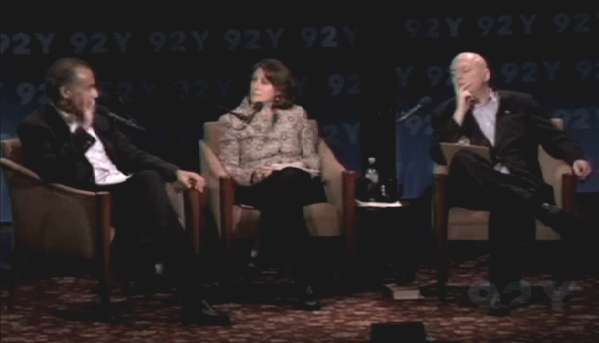By David Sehat
Liberals claim that the founding fathers separated church and state, while conservatives argue that the founders made faith a foundation of our government. Both sides argue that America once enjoyed a freedom to worship that they seek to preserve. Yet neither side gets it right.
1. The Constitution has always protected religious freedom.
Many Americans believe that the First Amendment’s separation of church and state safeguards religious liberty. But when the First Amendment was ratified in 1791, it did not apply to the states and would not until well into the 20th century. As a result, the First Amendment did not prevent states from paying churches out of the public treasury, as Maryland, Massachusetts, New Hampshire, Vermont, Connecticut and South Carolina did when that amendment was written. And those states that did not fund churches still favored Christianity. Blasphemy was forbidden in Delaware in 1826, and officeholders in Pennsylvania had to swear that they believed in “the being of a God and a future state of rewards and punishments.”
American federalism gave states enormous power to regulate the health, welfare and morals of their citizens. Because many thought religion was the foundation of American society, they used their power to imprint their moral ideals on state constitutions and judicial opinions for much of American history. Even today, these laws linger on the books. I still can’t buy beer on Sundays in Atlanta.
2. The founders’ faith matters.
Christians who consider the founders saintly won’t have much luck backing that up. Thomas Jefferson wrote a version of the New Testament that removed references to Jesus’s divinity. Ben Franklin was a deist. And George Washington may not have taken Communion.
But whatever the founders’ religious beliefs were, the First Amendment merely preserved the church-and-state status quo. There had never been an official religion in the 13 colonies, and the new states favored different faiths. The South was traditionally Anglican but had a growing Methodist and Baptist population. New England was traditionally Congregationalist, but evangelicals moved there nonetheless. The middle colonies mixed Lutherans, Catholics (in Maryland), Presbyterians and Quakers. A small number of Jews lived in early America, as well.
So the framers punted the issue of religion to the states, promising only that the power of the federal government would not be used to advance, say, Congregationalist beliefs over Presbyterian ones. This was a pluralistic vision of sorts but one that still allowed states to declare official religions and grant privileges to specific denominations.
3. Christian conservatives have only recently taken over politics.
Christian partisans mobilized early in U.S. history, seeking to impose an interdenominational — but still Christian and, more specifically, Protestant — moral order on the new nation.
Initially, Christians were more successful in exercising political and legal control at the state level. They passed blasphemy laws. They required Sabbath rest on Sundays. In Massachusetts, they mandated devotional exercises in public schools, a practice that spread to every state with public education.
In time, however, the faithful found a federal audience for moral reform with the passage of the 18th Amendment in 1919, a national experiment in prohibition. These moral campaigns anticipated many of the political disputes over religion that have emerged in recent decades, and they weren’t any less divisive than debates about the death penalty, abortion or gay marriage.
4. America is more secular than it used to be.
The American Revolution was actually a low point in American religious adherence. Sociologists have shown that no more than 20 percent of the popul
Blog: OUPblog (Login to Add to MyJacketFlap)
JacketFlap tags: Religion, christian, graham, Reagan, evangelical, Nixon, Rick Perry, *Featured, david sehat, myth of american religious freedom, Law & Politics, Add a tag
By David Sehat On Aug. 6, Texas Gov. Rick Perry will lead a prayer rally in Houston despite criticism that his event violates the separation of church and state. Though Perry said recently that he felt “called” to run for the presidency, he also told a Christian radio show that the rally will not be political. “This is simply people calling out to God,” he said.
Blog: OUPblog (Login to Add to MyJacketFlap)
JacketFlap tags: goodstein, Religion, myth, ramadan, Islam, debate, christianity, terrorism, christopher hitchens, sehat, George Bush, muslim, religious freedom, hitchens, Iran, religious tolerance, athiest, Tariq Ramadan, The Oxford Comment, laurie goodstein, *Featured, david sehat, myth of american religious freedom, separation of church and state, mafi, New York Times, Add a tag
Tweet
In this two-part series, Michelle and Lauren explore some of the most hot-button issues in religion this past year.
Subscribe and review this podcast on iTunes!
Featured in Part 1:
Christopher Hitchens and Tariq Ramadan Debate: Is Islam a Religion a Peace?
Highlights and exclusive interviews with Hitchens, Ramadan, & New York Times National Religion Correspondent Laurie Goodstein
 Read more and watch a video courtesy of the 92nd St Y HERE.
Read more and watch a video courtesy of the 92nd St Y HERE.
* * * * *
Nick Mafi, Oxford University Press employee extraordinaire
* * * * *
David Sehat, author of The Myth of American Religious Freedom
* * * * *




